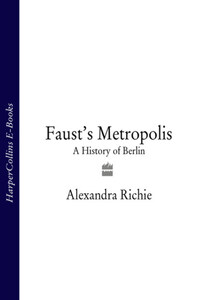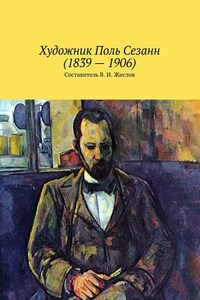FAUST’S METROPOLIS
A HISTORY OF BERLIN
ALEXANDRA RICHIE
William Collins
An imprint of HarperCollinsPublishers Ltd. 1 London Bridge Street London SE1 9GF
www.harpercollins.co.uk
First published in Great Britain by HarperCollinsPublishers in 1998
Ebook edition published in Great Britain by William Collins in 2013
Copyright © Alexandra Richie 1998
Alexandra Richie asserts the moral right to be identified as the author of this work
A catalogue record for this book is available from the British Library
All rights reserved under International and Pan-American Copyright Conventions. By payment of the required fees, you have been granted the nonexclusive, nontransferable right to access and read the text of this ebook on-screen. No part of this text may be reproduced, transmitted, downloaded, decompiled, reverse engineered, or stored in or introduced into any information storage and retrieval system, in any form or by any means, whether electronic or mechanical, now known or hereinafter invented, without the express written permission of HarperCollins ebooks
HarperCollinsPublishers has made every reasonable effort to ensure that any picture content and written content in this ebook has been included or removed in accordance with the contractual and technological constraints in operation at the time of publication
Source ISBN: 9780002158961
Ebook Edition © SEPTEMBER 2013 ISBN: 9780007455492
Version: 2017-04-25
For Władysław Bartoszewski
From the moment I first set foot in the city as a young student I became fascinated by Berlin. Like Faust, Berlin can be said to have two spirits in the same breast; it is both a terrible and a wonderful city, a place which has created and destroyed and whose name is both acclaimed and blackened. It is not without reason that Berlin has been called everything from the ‘symbol of German destiny’ to the ‘city of the twenty-first century’. Above all, it is a place where history could not and still cannot be hidden away.
When I first went to live there Berlin was the ultimate border city, representing nothing less than the Cold War division between the ‘Communist’ and the ‘Free’ world. It was a capital city and a strange backwater, a centre and a borderland at the same time. The revolution which erupted in 1989 and led to the destruction of the Berlin Wall made it once again the focus of world attention. As I watched the Wall being reduced to rubble I realised that the dramatic changes would raise very disturbing questions about Berlin’s role in Germany and its function as a symbol in the creation of German identity. Now more than ever it is imperative for us to be aware of the triumphs and the mistakes of its past, as the decisions made in Berlin in years to come will affect us all.
I have tried to write a book that addresses the city’s crucial role in world events. It is not a local history, although it has elements of this, but is a history of Germany – even of Europe, including the often-neglected east – as seen through the ‘prism’ of Berlin. The book is meant for the general reader. Much of the material is known and its claim to originality lies more in the selection and presentation of information than in new discoveries. I have tried to avoid specialist language and the narrow categories of contemporary historiography, choosing instead to weave various aspects of cultural, social and economic history together with more conventional military or diplomatic approaches into a comprehensive whole. With the exception of the introduction, which brings the story up to date, the book follows a broad chronological framework. Although I cover all periods of Berlin’s past, the emphasis is clearly on the city in the twentieth century, its role in the First World War, in the Holocaust, in the creation of modernist culture, in the identity of post-Cold War Europe – in numerous crucial events of the recent past.
Many people have helped me in the writing of this book. It evolved from the D.Phil which I wrote at St Antony’s College, Oxford, and I would like to thank the Warden of St. Antony’s, Lord Dahrendorf, and the Fellows of the College, particularly those at the European Studies Centre who have done so much to support my research. I would like to thank the President of Wolfson College, Sir David Smith, and the Fellows of the College for granting me a fellowship and providing the wonderful haven in which I was able to work. Timothy Garton Ash has been a great source of inspiration and I am most grateful to him for recommending me to HarperCollins. I would also like to thank Michael Burleigh for first suggesting Berlin as a topic, and Warren Magnusson and Raymond Klibansky for their help. I am most grateful to the late Sir Isaiah Berlin for persuading me to write history, it is not too much to say that his words changed the course of my life.








